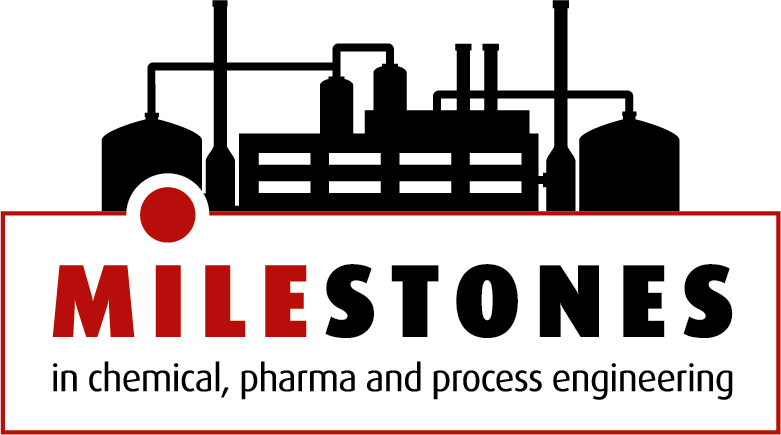:quality(80)/images.vogel.de/vogelonline/bdb/1792400/1792442/original.jpg)
Emission Control Exxon Mobil’s New Business to Focus on CCS and Low Carbon Technologies
Exxon Mobil’s new business – Exxon Mobil Low Carbon Solutions will initially focus on CCS in order to achieve the Paris Agreement climate goals. The newly created segment is already advancing plans for over 20 new CCS opportunities to assist large-scale emission reductions.
Related Companies

Texas/USA – Exxon Mobil has recently created a new business to commercialize its extensive low-carbon technology portfolio. The new business, Exxon Mobil Low Carbon Solutions, will initially focus on carbon capture and storage, one of the critical technologies required to achieve net zero emissions and the climate goals outlined in the Paris Agreement.
Exxon Mobil Low Carbon Solutions is advancing plans for more than 20 new carbon capture and storage opportunities around the world to enable large-scale emission reductions. Exxon Mobil plans to invest 3 billion dollars on lower emission energy solutions through 2025. The business will be led by Joe Blommaert, who has more than 30 years of experience in the industry with leadership roles in technology advancement, product marketing, and operations. The board of directors has elected him as a vice president of Exxon Mobil Corporation.
CCS is the process of capturing CO2 that would otherwise be released into the atmosphere from industrial activity, and injecting it into deep geologic formations for safe, secure and permanent storage. The United Nations Intergovernmental Panel on Climate Change and the International Energy Agency agree that CCS is one of the most important low-carbon technologies required to achieve societal climate goals at the lowest cost. CCS is also one of the only technologies that could enable some industry sectors to decarbonize, including the refining, chemicals, cement and steel sectors.
Exxon Mobil Low Carbon Solutions will also leverage Exxon Mobil’s significant experience in the production of hydrogen which, when coupled with CCS, is likely to play a critical role in a lower-carbon energy system. Other technology focus areas in Exxon Mobil’s low carbon portfolio will be added in the future as they mature to commercialization.
“With our demonstrated leadership in carbon capture and emissions reduction technologies, Exxon Mobil is committed to meeting the demand for affordable energy while reducing emissions and managing the risks of climate change,” said Darren Woods, chairman and chief executive officer. “We are focused on proprietary projects and commercial partnerships that will have a demonstrably positive impact on our own emissions as well as those from the industrial, power generation and commercial transportation sectors, which together account for 80 per cent of global CO2 emissions. We have the expertise that can help bring technologies to market and make a meaningful difference.”
The business will seek to develop partnerships and collaborations on a wide range of technologies, and be responsible for marketing of emission-reduction credits created through the business’s sequestration projects.
New CCS projects and partnerships under evaluation include:
• U.S. Gulf Coast – Exxon Mobil is assessing multiple CCS projects along the U.S. Gulf Coast that have the potential to collect millions of tons of CO2 from industrial sources for storage in onshore and offshore geologic formations. Included in these projects is a CCS hub concept in Southeast Texas.
• Wyoming, USA – Exxon Mobil has progressed permitting for the expansion of its La Barge CCS facilities, which could enable an additional one million tons of CO2 per year to be captured. Existing facilities currently capture approximately 7 million tons per year, which is the largest amount of CO2 captured by any industrial facility in the world.
• Netherlands – Exxon Mobil has executed a joint development agreement to advance its interest in the Port of Rotterdam CO2 Transportation Hub and Offshore Storage project, known as Porthos. The Porthos project aims to collect CO2 emissions from industrial sources and transport them by pipeline to depleted North Sea offshore gas fields. Porthos and its potential customers have applied for EU and national support mechanisms. Exxon Mobil also participates in the H-Vision study into large-scale production of low-carbon hydrogen in Rotterdam.
• Belgium – Exxon Mobil is participating in the multi-stakeholder CCS project at the Port of Antwerp, Europe’s largest integrated energy and chemicals cluster. The project, which would collect CO2 emissions from industrial sources for storage, recently applied for support from the European Union.
• Scotland – Through its joint venture in the Segal system in Northeast Scotland, Exxon Mobil is progressing discussions to support the Acorn project, which will collect CO2 from the St. Fergus gas processing complex for transport and storage in offshore gas reservoirs.
• Singapore – Exxon Mobil is planning a CCS hub concept to capture, transport and permanently store CO2 generated by industrial activity in the Asia-Pacific region. The project concept is based on a plan to capture CO2 emissions from Singapore manufacturing facilities for storage in the region.
• Qatar – Exxon Mobil is a partner in several existing joint ventures with Qatar Petroleum that operate a CCS project with an annual capacity of 2.1 million tons at Ras Laffan. Exxon Mobil is evaluating opportunities to add additional capture capacity in the region.
The new projects will complement Exxon Mobil’s current carbon capture capacity in the United States, Australia and Qatar, which totals about 9 million tons per year, the equivalent of planting 150 million trees every year.
(ID:47111799)




:quality(80)/images.vogel.de/vogelonline/bdb/1792200/1792283/original.jpg)
:quality(80)/images.vogel.de/vogelonline/bdb/1792000/1792073/original.jpg)
:quality(80)/images.vogel.de/vogelonline/bdb/1791500/1791582/original.jpg)
:quality(80)/images.vogel.de/vogelonline/bdb/1792400/1792466/original.jpg)
:quality(80)/images.vogel.de/vogelonline/bdb/1792000/1792068/original.jpg)
:quality(80)/images.vogel.de/vogelonline/bdb/1791500/1791591/original.jpg)
:quality(80)/images.vogel.de/vogelonline/bdb/1784300/1784372/original.jpg)
:quality(80)/images.vogel.de/vogelonline/bdb/1755500/1755515/original.jpg)
:quality(80)/images.vogel.de/vogelonline/bdb/1750100/1750119/original.jpg)
:quality(80)/images.vogel.de/vogelonline/bdb/1744100/1744189/original.jpg)
:quality(80)/images.vogel.de/vogelonline/bdb/1792600/1792676/original.jpg)
:quality(80)/images.vogel.de/vogelonline/bdb/1791600/1791666/original.jpg)
:quality(80)/images.vogel.de/vogelonline/bdb/1791200/1791238/original.jpg)
:quality(80)/images.vogel.de/vogelonline/bdb/1790500/1790551/original.jpg)
:quality(80)/images.vogel.de/vogelonline/bdb/1781300/1781356/original.jpg)
:quality(80)/images.vogel.de/vogelonline/bdb/1779700/1779733/original.jpg)
:quality(80)/images.vogel.de/vogelonline/bdb/1775200/1775249/original.jpg)
:quality(80)/images.vogel.de/vogelonline/bdb/1792700/1792709/original.jpg)
:quality(80)/images.vogel.de/vogelonline/bdb/1792600/1792668/original.jpg)
:quality(80)/images.vogel.de/vogelonline/bdb/1792500/1792543/original.jpg)
:quality(80)/images.vogel.de/vogelonline/bdb/1788100/1788142/original.jpg)
:quality(80)/images.vogel.de/vogelonline/bdb/1769000/1769071/original.jpg)
:quality(80)/images.vogel.de/vogelonline/bdb/1750700/1750774/original.jpg)
:fill(fff,0)/p7i.vogel.de/companies/5f/98/5f98fbb2e7bf2/05-trm-filter-logo-with-slogan-en-alt.png)
:fill(fff,0)/p7i.vogel.de/companies/5e/a2/5ea2b5ca18eac/schubert-cp-gross-rgb--003-.jpg)

:quality(80)/images.vogel.de/vogelonline/bdb/1613400/1613486/original.jpg)
:quality(80)/images.vogel.de/vogelonline/bdb/1722000/1722011/original.jpg)